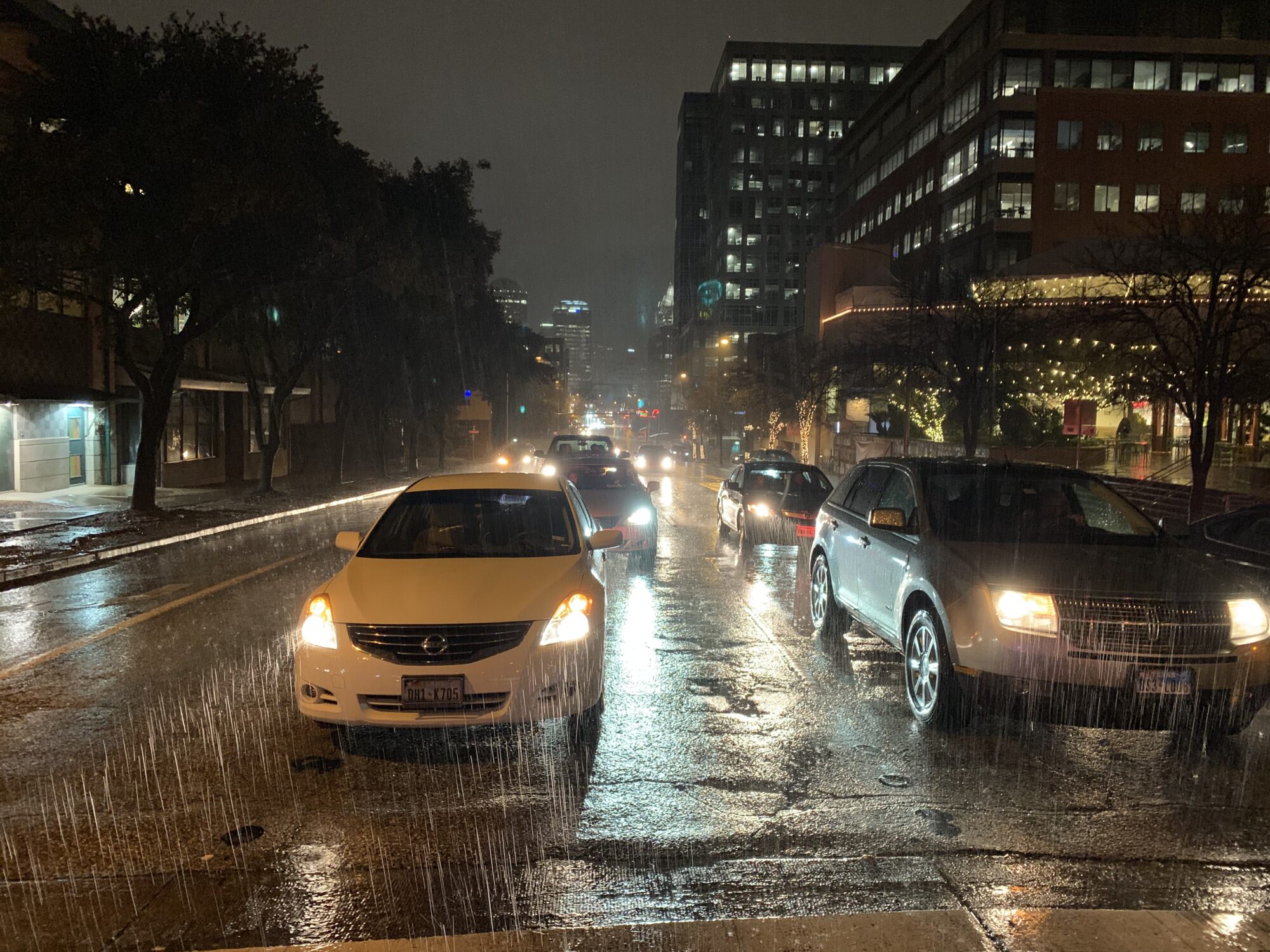Texas is a big state with big issues happening across the state. Here is our list of significant public policy stories that happened across the state that might not have received as much attention as they may have deserved.
This post contains explanations of six through ten, and a first post includes one through five, in this list.
6. The Capital Area Metropolitan Planning Organization Has Begun One of the Nation’s First Regional Vision Zero Action Plans
The Vision Zero movement has been dominated by two separate efforts: local activists working with local elected officials to adopt Vision Zero Action Plans for American cities, and statewide public servants and leaders developing zero death plans for State DOTs. Both are happening in Texas, and we are spending a lot of Vision Zero Texas energy at both levels.
However, the American transportation policy is dominated by regional level planning at the Metropolitan Planning Organizations. Serious efforts to end traffic deaths require regional coordination and integration of Vision Zero goals and strategies into regional transportation planning.
As the focal point of the 2017 World Day of Remembrance for Road Traffic Victims, we worked with Vision Zero ATX, BikeAustin, WalkAustin, and Reconnect Austin to lead a campaign asking Austin’s MPO, Capital Area MPO (CAMPO), to adopt a regional Vision Zero Action Plan. Members of our team met with a majority of the elected officials on the region’s Transportation Policy Board (TPB).
In February 2018, the CAMPO TPB voted to approve a contract with the Texas A&M Transportation Institute to begin a regional safety study, achieving much of what we were asking for. A stakeholder committee has been formed and extensive background research has been conducted, but the public process to develop a regional Vision Zero Action Plan will be coming in the next year. Farm&City will be serving on the stakeholder committee and will work to ensure meaningful public involvement.
7. The City of San Antonio Adds a Full Time Sidewalks Staff Person
In general, Texas has a huge sidewalk problem – missing and broken sidewalks are the norm, meaning children and people of all abilities lack the freedom that residents of accessible cities enjoy. Most large Texas cities are likely vulnerable for ADA lawsuits. Houston is just at the beginning of a meaningful citywide conversation to start addressing this problem.
Austin is a little bit ahead of the rest of Texas cities, a couple years into its updated, data-based Sidewalk Master Plan / ADA Transition Plan, with meaningful amounts of funding included for sidewalks in the last couple of bonds. However, a crucial element of Austin’s success is finding funding in the regular operating budget for City staff dedicated to the issue.
San Antonio joined Austin this year in taking the sidewalk problem seriously, by creating a full time position in the 2018 budget process. We were very excited to provide this letter of support.
8. Kris Banks moves from Sylvester Turner’s Houston City Hall to Adrian Garcia’s Harris County Precinct as Policy Director, following Amar Mohite on the city to county move.
The Houston region is heading for remarkable changes, with a Democratic majority at Harris County Commissioners Court for the first time in at least forty years. The City of Houston has long been one of the most progressive entities in Texas, a beacon of tolerance for people of all races, genders, and sexual orientations and a nationwide leader in better transit planning.
Following the move of Amar Mohite from the City of Houston Planning Department to Commissioner Rodney Ellis’ Precinct office, Kris Banks is moving from the City of Houston Mayor’s office to become Director of Policy for newly elected Commissioner Adrian Garcia.
“The truth is, Harris County can do much more. Former sheriff and city council member Adrian Garcia ran for County Commissioner for Precinct 2 with the promise that Harris County will. Now elected and part of the new Democratic majority on Commissioners Court, Commissioner-elect Garcia will be taking the County’s role further than building roads and parks: Tackling environmental justice, improving housing stability and home ownership, approaching criminal justice in a brand new way.”
Kris Banks, Harris County Precinct Two Director of Policy
The third largest county in the nation also just elected a 27-year-old Hispanic woman as its County Judge. Lina Hidalgo is currently building her team, including hiring a Policy Director who will “oversee a team of 3-5 policy advisors who will focus on various issue-specific topics, such as Harvey recovery, climate resilience, criminal justice reform, affordable housing, gun safety, and early childhood education.”
Generation X, Generation Y, and the Millenials are taking their seats at the public policy arena at Texas’ largest county, changing the way we think about county and city lines, urban development, transportation, and justice.
9. Austin Voters Imposed a $160 Million Property Tax Bond for Transportation with Zero Promised to Car Capacity Expansion
In perhaps a first for a large Texas city, the voters of Austin passed a transportation bond package with elected officials and staff having given no promises to use any of the funds to expand roadway capacity. The future of Texas is going to be built around a safe, multimodal transportation system built around upgrading and improving the existing human habitat that we have already built. The sooner elected officials can have the moral fortitude to stop promising to “combat congestion” which is never achieved, the sooner we can get our fiscal house in order and build the Texas we deserve.
10. Texas State Representative Gene Wu Wants Smart Growth.
Back in 2009, then-Senator Rodney Ellis and now-Senator Carol Alvardo passed a bill through the House and unanimously through the Senate to create a statewide Smart Growth Task Force, to collaborate with TXDOT and other entities to develop a fiscally responsible growth strategy for Texas metropolitan regions. Then-Governor Rick Perry vetoed it.
We are paying the high costs of dumb growth policies, including traffic crashes, congestion, lack of affordability, and social and environmental costs. So it is a refreshing thing for State Representative Gene Wu to propose a need to rethink how our metropolitan region’s grow:
It’s time to seriously talk about how Texas cities develop and spread.
In the long run, this is not just bad for our economy and environment, but it’s bad for our quality of life.
Just building further and further out is no longer a responsible option.
– Texas State Rep. Gene Wu, 12/8/18


Pingback:10 Great Buried Texas Public Policy Stories from 2018 – 1/2 – Farm&City